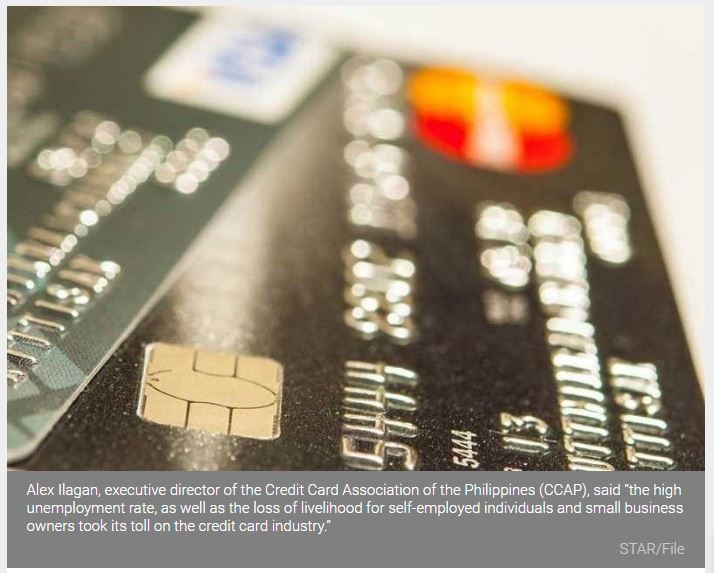Philippines: Credit card billings plunge 27% in H1
MANILA, Philippines — Credit card billings plunged by 27 percent in the first semester as usage slumped amid the coronavirus pandemic.
Alex Ilagan, executive director of the Credit Card Association of the Philippines (CCAP), said “the high unemployment rate, as well as the loss of livelihood for self-employed individuals and small business owners took its toll on the credit card industry.”
Aside from making its more difficult to settle their credit card debt, clients were hesitant to apply for new credit cards as unemployment soared to nearly and all-time high of 20 percent by June.
“We saw an unprecedented rise of credit card holders being unable to pay their balance, which resulted in the credit card past due level growing by as much as thrice by September as compared to the pre-ECQ level,” Ilagan said, referring to enhanced community quarantine.
According to CCAP, the high percentage of unpaid debt has forced banks to allocate a significant amount for credit loss provision, pushing credit cost to unprecedented levels.
“With these immense changes, the industry continues to do its best to survive, and this includes credit prudence and leveraging opportunities to save cost through the digitization of customer service,” it said.
The credit card industry, like many other sectors, is no stranger to the adverse effects of the country’s widespread lockdown. Usage slumped in the first six months of the year as different types of businesses were forced to stop operations.
Ilagan puts emphasis on being on top of one’s expenses and maintaining a good credit standing, even during the pandemic.
“Credit cards are powerful tools, and card holders should use them responsibly. This is because situations such as a pandemic are temporary, and it may not be the only time that credit card holders must utilize their cards,” he said.
Likewise, clients might also need to depend on their cards to rebuild their lives after the pandemic, or for unforeseeable emergencies in the future.
“The best action that credit card holders can take to maintain a good credit standing during the pandemic is to ensure that credit card bills are paid on time. They should also avoid maxing out their credit limits because it will reduce their credit score,” Ilagan said.
He also said financial discipline is important, and credit cards should be viewed as a tool for convenience in making payments and a readily available standby line of credit for emergency or big purchases.
Borrowers severely affected by the pandemic are entitled to a 60-day grace period under Republic Act 11494 or the Bayanihan to Recover as One Act.
“Credit card customers can avail of these forbearance programs to help them repay their credit card debts through easy and flexible repayment schemes,” Ilagan said.
Aside from navigating the new normal, banks and financial institutions have to pivot into the digital world with credit card issuers shifting to electronic billing statements from paper-based statements.
This helps ensure the timely delivery of credit card bills amid the pandemic. Banks are also strengthening their online interactions with cardholders, be it through emails, social media platforms, or chatbots.
Starting Nov. 3, the annual interest rate on credit card transactions will be capped at 24 percent or equivalent to a maximum of two percent per month in finance charges on unpaid outstanding credit card balance of a cardholder.
Source: https://www.philstar.com/business/2020/10/07/2047656/credit-card-billings-plunge-27-h1


 Thailand
Thailand




